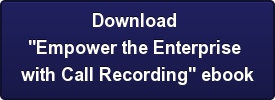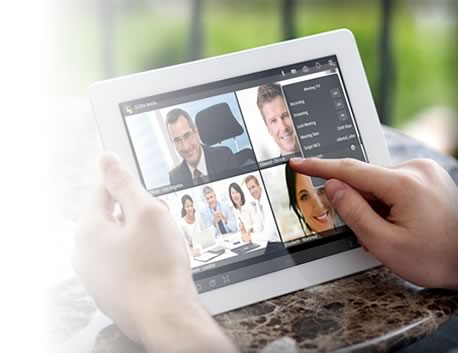What if your business could have a window into what your customers actually think – such as how they view the level of service you’re providing, or how satisfied (or dissatisfied) they are with your products? Or, wouldn’t it be valuable to have a window into whether your staff is actually performing their jobs as they should? That window exists, and it’s more accessible than you may realize, thanks to call recording.
For businesses big and small, operating across the world or just down the street, call recording can provide critical information for sales and marketing intelligence, customer service, compliance, and staff development. Organizations spanning all industry sectors – even non-profits and government entities – can realize benefits from using a call recording system to capture, monitor, and track customer interactions.
Call recording can enable any organization to enhance its:
Service quality: Call recording captures customer interactions so that managers can see that their people are providing the highest level of service. Recorded calls also help in dispute resolution.
Regulatory and industry compliance: Call recording can help to ensure that the proper procedures – from a PCI or HIPAA compliance perspective – are being followed. This includes guaranteeing that credit-card information and personal data are being properly handled.
Operational performance: Call recording allows managers to screen employees’ activity to identify areas where workflow was hampered or interrupted. It can also assist with staff training and development.
Call recording isn’t just for multinational companies with complicated IT systems and thousands of customer service reps. Small business owners might be surprised to learn that it can take minimal technical expertise or aptitude to install and use a call recording system. For small business owners, the best solutions are ones that:
-Can be remotely downloaded and installed, in some cases in fewer than 30 minutes.
-Need no special hardware; they can run on existing workstations or servers.
-Require absolutely NO maintenance.
-Can be learned and used in minutes; no technical expertise is required to install, operate, or manage the system.
Of course, financial considerations are a concern for any business, global enterprises and sole proprietorships alike. The truth is, today’s technology has evolved to such an extent that what used to take tens of thousands of dollars can now be purchased for just a few hundred. Those costs include a small upfront or monthly fee, but with the right system, there are no fees for implementation, maintenance, training, or troubleshooting.
Ready to take the next step? Then here are some questions to ask when choosing a call recording vendor and solution:
- Is the solution designed primarily for a company my size?
- Does the solution support multi-site and multi-tenant capabilities, if and when I need them?
- What does the implementation process look like and what does it cost?
- Is there phone support available in case I have any questions?
- How open and interoperable is the solution, given my current IT environment?
- Does the call recording vendor have experience with businesses in my industry?
- Is the solution designed to address my specific industry and regulatory requirements?















 There are multiple factors to consider when moving away from your existing phone system to a new IP telephony system. One of the most important decisions to make is choosing the right PBX system, and taking into consideration the company’s IT and business practices.
There are multiple factors to consider when moving away from your existing phone system to a new IP telephony system. One of the most important decisions to make is choosing the right PBX system, and taking into consideration the company’s IT and business practices.

